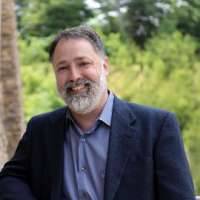
Daniel James Frayne MD
Family Medicine
Asheville, North Carolina, United States of America
Connect with the speaker?
Dr. Daniel James Frayne has served as President of MAHEC. He joined the MAHEC Department of Family Medicine in 2006 and held several leadership positions including Medical Director, Assistant Residency Director, and Medical Director of the Department of Continuing Professional Development and the Simulation Center.
He attended Boston University and the University of California at Irvine College of Medicine, and completed a Family Medicine Residency at Lancaster General Hospital in Pennsylvania. He then spent four years as a rural primary care physician in Linville, North Carolina. He is a Professor of Family Medicine with UNC-Chapel Hill School of Medicine and is a clinical preceptor for medical students at the UNC School of Medicine Asheville Campus.
Preconception healthcare and advocating for women’s health and improved birth outcomes is an area of great interest to Dr. Frayne. He has been involved in grant-funded collaborations to expand the IMPLICIT Interconception Care model and state and federal Preconception COIIN projects. He has served as a member of the NC State Preconception Health Strategic Planning Team since 2016, is the co-chair of the clinical working group of the National Preconception Health and Healthcare Initiative, and sits on multiple national steering committees focused on improving reproductive health for women. He has collaborated with colleagues to publish numerous articles on this topic and is a presenter at state and national conferences.
Dr. Frayne’s vision is to improve the health of the community by impacting the system from the ground up, both personally and professionally. He believes that the health of our community will be transformed if we focus on healthcare through an intergenerational lens - improving the health of women before pregnancies to achieve a healthier mother and child, and ultimately a healthier family and community. We can only do this well if we transform the way we deliver healthcare. Transformation can happen by focusing on quality outcomes and population health, expanding beyond the clinic structure and into the community AND dedicating ourselves to ending racism and creating equity for all.
He attended Boston University and the University of California at Irvine College of Medicine, and completed a Family Medicine Residency at Lancaster General Hospital in Pennsylvania. He then spent four years as a rural primary care physician in Linville, North Carolina. He is a Professor of Family Medicine with UNC-Chapel Hill School of Medicine and is a clinical preceptor for medical students at the UNC School of Medicine Asheville Campus.
Preconception healthcare and advocating for women’s health and improved birth outcomes is an area of great interest to Dr. Frayne. He has been involved in grant-funded collaborations to expand the IMPLICIT Interconception Care model and state and federal Preconception COIIN projects. He has served as a member of the NC State Preconception Health Strategic Planning Team since 2016, is the co-chair of the clinical working group of the National Preconception Health and Healthcare Initiative, and sits on multiple national steering committees focused on improving reproductive health for women. He has collaborated with colleagues to publish numerous articles on this topic and is a presenter at state and national conferences.
Dr. Frayne’s vision is to improve the health of the community by impacting the system from the ground up, both personally and professionally. He believes that the health of our community will be transformed if we focus on healthcare through an intergenerational lens - improving the health of women before pregnancies to achieve a healthier mother and child, and ultimately a healthier family and community. We can only do this well if we transform the way we deliver healthcare. Transformation can happen by focusing on quality outcomes and population health, expanding beyond the clinic structure and into the community AND dedicating ourselves to ending racism and creating equity for all.

